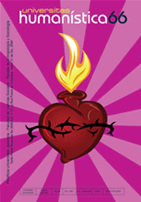Abstract
Illness, as a subject of study and social intervention, allows us to conduct epistemological and political debates in the realm of Social and Health Sciences. We start with proposing academic exercises about "experiences during illness" instead of insisting in the modern ideal of health. Based on the history of Astrid and her struggle to get quality medical attention for her daughter, we discuss her actions, framed within a violent structure: the commercialized Colombian healthcare system. We use the tension between agency and structure, prevailing model in Social Sciences, to propose a methodological, epistemological and political movement that we call Structured Intersubjectivities. We argue that we should not be unaware of the structure or concede that is has a determining influence on the subject, but that we need to think about the actions of the subject (his or her capacity of agency) as a quality of the subjectivity that occurs in social interactions and in specific historical moments.

This journal provides immediate open access to its content on the principle that making research freely available to the public, encourages greater global exchange of knowledge.
The journal Universitas Humanística is registered under a Creative Commons Attribution 4.0 International Public License. Thus, this work may be reproduced, distributed, and publicly shared in digital format, as long as the names of the authors and Pontificia Universidad Javeriana are acknowledged. Others are allowed to quote, adapt, transform, auto-archive, republish, and create based on this material, for any purpose (even commercial ones), provided the authorship is duly acknowledged, a link to the original work is provided, and it is specified if changes have been made. Pontificia Universidad Javeriana does not hold the rights of published works and the authors are solely responsible for the contents of their works; they keep the moral, intellectual, privacy, and publicity rights.
Approving the intervention of the work (review, copy-editing, translation, layout) and the following outreach, are granted through an use license and not through an assignment of rights. This means the journal and Pontificia Universidad Javeriana cannot be held responsible for any ethical malpractice by the authors. As a consequence of the protection granted by the use license, the journal is not required to publish recantations or modify information already published, unless the errata stems from the editorial management process. Publishing contents in this journal does not generate royalties for contributors.


